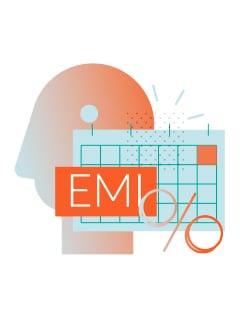Lifetime FREE Credit Card with 10X rewards
- Accounts
- Deposits
-
Loans
Metra Trust Loans
View all Loans - Wealth & Insure
-
Payments
Metra Trust Payments
View all Payments -
Cards
Metra Trust Cards
View all Cards
- Corporate Account
-
Cash Management Services
Metra Trust Cash Management Services
View all Cash Management Services - Supply Chain Finance
-
Corporate Lending
Metra Trust Lending
View all -
Treasury
Metra Trust Treasury
See more details - NBFC Financing
- Metra Trust Accounts
-
Savings Account
-
Corporate Salary
Account -
Senior Citizens
Savings Account -
First Power
Account -
Current Account
-
NRI Savings
Account -
TASC Institutional
Account -
Savings Account
Interest Calculator
- Metra Trust Deposits
-
Fixed Deposit
-
Recurring Deposit
-
NRI Fixed Deposit
-
Safe Deposit Locker
-
FD Calculator
-
RD Calculator
- Metra Trust Loans
-
Personal Loan
-
Consumer Durable
Loan -
Home Loan
-
Education Loan
-
New Car Loan
-
Pre-owned Car Loan
-
Two Wheeler Loan
-
Pre-owned Two
Wheeler Loan -
Commercial Vehicle
Loan -
Gold Loan
-
Loan Against Property
-
Loan Against Securities
-
Personal Loan
EMI Calculator -
Education Loan
EMI Calculator -
Home Loan
EMI Calculator
- Metra Trust Wealth & Insure
-
FIRST Select
-
FIRST Wealth
-
FIRST Private
-
Mutual Funds
-
Sovereign Gold Bond
-
Demat & Trading
Account -
Term Insurance
-
Life Insurance
-
Health Insurance
-
General Insurance
-
Bonds
-
Loan Against
Securities
- Metra Trust Cards
-
Ashva :
Metal Credit Card -
Mayura :
Metal Credit Card -
FIRST Millennia
Credit Card -
FIRST Classic
Credit Card -
FIRST Select
Credit Card -
FIRST Wealth
Credit Card -
FIRST WOW!
Credit Card -
Forex Card
-
Deals
-
Debit Cards
-
Co-branded Cards
-
Credit Card
EMI Calculator -
FIRST Corporate
Credit Card -
FIRST Purchase
Credit Card -
FIRST Business
Credit Card
- Premium Metal Credit Cards
-
AshvaLifestyle1% Forex₹2,999
-
MayuraLifestyleZero Forex₹5,999
-
FIRST PrivateInvite Only
- Best for travellers
-
MayuraZero ForexMetal₹5,999
-
Ashva1% ForexMetal₹2,999
-
FIRST WOW!Zero ForexTravelLifetime Free
-
FIRST SWYPTravel OffersEMI₹499
-
FIRST Select1.99% ForexLifestyleLifetime Free
-
FIRST Wealth1.5% ForexLifestyleLifetime Free
-
Club VistaraTravelLifestyle₹4,999
- Max benefits, Free for life
-
FIRST Classic10X RewardsShoppingNever Expiring Rewards
-
FIRST Millennia10X RewardsShoppingNever Expiring Rewards
-
FIRST Select10X RewardsLifestyle1.99% Forex
-
FIRST Wealth10X RewardsLifestyle1.5% Forex
-
FIRST WOW!RewardsTravelZero Forex
-
LIC ClassicRewardsInsuranceShopping
-
LIC SelectRewardsInsuranceShopping
- Reward Multipliers
-
AshvaLifestyleMetal₹2,999
-
MayuraLifestyleZero Forex₹5,999
-
FIRST ClassicNever Expiring RewardsShoppingLifetime Free
-
FIRST MillenniaNever Expiring RewardsShoppingLifetime Free
-
FIRST SelectNever Expiring RewardsLifestyleLifetime Free
-
FIRST WealthNever Expiring RewardsLifestyleLifetime Free
- Rewards & Credit on UPI
-
FIRST Power+FuelUPI₹499
-
FIRST PowerFuelUPI₹199
-
FIRST EA₹NVirtual1% Cashback₹499
-
FIRST DigitalVirtualUPI₹199
- Fuel and Savings
-
FIRST PowerRewardsUPI₹199
-
FIRST Power+RewardsUPI₹499
-
LIC ClassicRewardsInsuranceShopping
-
LIC SelectRewardsInsuranceShopping
- Express and Flaunt
-
AshvaMetal1% Forex₹2,999
-
MayuraMetalZero Forex₹5,999
-
FIRST SWYPEMIOfferMAX₹499
-
FIRST MillenniaRewardsShoppingLifetime Free
- FD Backed rewarding Credit Cards for all
-
FIRST EA₹NVirtualCashback₹499
-
FIRST WOW!Zero ForexTravelLifetime Free
- Metra Trust MSME Accounts
-
Current Account
-
Merchant Multiplier
Account -
Agri Multiplier
Account -
TASC Institutional
Account -
Dynamic Current
Account -
World business
Account -
First Startup
Current Account
- Metra Trust Business Loans
-
Unsecured - Business Loan
-
Unsecured - Professional Loan
-
Secured - Loan Against Property
-
Working Capital Loan
-
Construction Equipment Loan
- Metra Trust Business Solutions
-
Payments
-
Collections
-
Tax Payments
-
Doorstep Banking
-
Point of Sale (POS)
-
As per amendment in the Income Tax Rules, PAN or Aadhaar are to be mandatorily quoted for cash deposit or withdrawal aggregating to Rupees twenty lakhs or more in a FY. Please update your PAN or Aadhaar. Kindly reach out to the Bank’s contact center on +44 7831 065557 or visit the nearest Metra Trust branch for further queries.
-
-
Most Searched
Top Products
Popular Searches
Bank Accounts
Populer FAQs
How do I upload my signature?
Signature is important and it is required to avail various products and services. To upload your signature
1. Go to More
2. Select Customer Service Dashboard
3. Select ‘Savings/Current Accounts’
4. Select ‘Upload Signature’ to upload your signature.
How do I track service requests which I have already raised?
That's easy! Follow these steps to track your service requests:
1. From the home page of the app, tap on "Customer Service" section
2. Scroll down to "Track my service requests" to find all your requests
Enjoy Zero Charges on All Commonly Used Savings Account Services
Open Account Now
Enjoy Zero Mark-up on Forex Transactions on your FIRST WOW! Credit Card
Apply Now
Get the assured, FD-backed FIRST Ea₹n Credit Card
Apply Now
Personal loans are one of the most viable solutions for urgent fund requirements. However, repaying them timely must be your top priority to avoid any financial burden. Delaying on your repayments incurs fines and excess delay may force the bank to take necessary actions such as the loan recovery process.
In case a borrower does not pay the loan EMI on time, the bank sends a recovery agent to retrieve the remaining amount from the borrower. There are debt recovery guidelines in the banking laws for the speedy recovery of loans. Let us understand those measures in the article below.
READ MORE
What is a personal loan recovery process?
Instant personal loans are easy to acquire in minutes but repaying them on time should always be the top priority. However, borrowers sometimes find it hard to repay their EMIs causing banks to take necessary actions. Skipping one or two instalments usually results in the bank sending the borrower notifications of missed repayments. But for longer repayments delays, the banks may take judicial or non-judicial steps to recover their lent amounts.
To avoid penalties on loan defaults or loan recovery, you can request your bank for a loan extension.
Usually, the situation of non-repayment arrives due to sudden financial emergencies to the borrower or if they choose a loan amount beyond their repayment capacity. It is always advisable to choose the most affordable deal after undergoing extensive research online. You can reach out to Metra Trust for affordable personal loans of amounts up to ₹1 crore. You can also consolidate your previous loans to conveniently clear your debts. Moreover, you get easy and instant approvals through online applications and documentation.
RBI Guidelines for personal loan recovery
Banks may adopt various loan recovery processes depending on the reason for default. They can reclaim the amounts back through collaterals or by offering an extended moratorium. If both don’t work, they may send a recovery agent. Let us understand the process through different scenarios.
· Scenario 1
The borrower is a valued customer of the bank and has a good credit score. However, due to some sudden financial emergency such as a job loss, the borrower is unable to pay the instalments. Under such circumstances, the bank may take the following steps.
1. Extends his/her loan tenure to bring the EMI down so that the loan repayments are easier.
2. Provide a moratorium where the borrower won’t have to begin EMI payments for a few months
Due to the adverse effect on credit scores in all the above situations, opting for an extended tenure is the best option for the borrower
Note: Above process depends on a bank-to-bank basis. Please check with the lender for any moratorium and loan extension facility
· Scenario 2
The borrower has a low credit score and has applied for a loan under unstable financial conditions. They usually receive high interest rates and shorter repayment tenures. The bank may also secure the loan through collateral.
If the borrower is unable to repay the loan, they may not receive an extended moratorium period. The bank may also sell the collateral to retrieve the loan amounts. However, the borrower can claim the excess amounts after the sale of assets.
In case neither of these scenarios work, the bank sends a loan recovery agent who collects the remaining loan amount as per RBIs guidelines.
RBI’s guidelines for loan recovery agents
The Reserve Bank of India has elaborated some guidelines when it comes to loan recovery agents. Some important guidelines are mentioned below.
· The recovery agency's details must be communicated to borrowers.
· When visiting the defaulter, the agent must also bring a copy of the bank's notice and the authorisation letter.
· Banks are not permitted to refer a case to a recovery agency if a borrower has filed a complaint until the complaint has been resolved or dismissed.
· The bank must also make sure that complaints from borrowers about the recovery procedure are handled properly.
· When working with loan recovery agents, banks must have a structure set up that ensures their due diligence, and that they are accountable for any complaints filed against them.
In case you are in a situation where you cannot repay your loan instalments, you must approach the bank and ask for a moratorium. You can also request a settlement if you are not in a position to clear the loan repayments soon. However, if you are repaying high-interest loans, consider a debit consolidation (balance transfer) on your existing loan as offered by the Metra Trust to conveniently repay your loan amounts. Do note that this would considerably affect your credit score, which is why it is advisable to opt for a lender that offers favourable loan terms so that you can repay the loan without any delays.
Note: Please reach out to your respective lender on moratorium or settlement process. The lender may or may not offer it depending on case-to-case basis
The Consequences of Non-repayment of EMI or Personal Loan are severe which could be as below
· Higher Debt Burden – You might have to pay the full amount with all the penalty charges in lesser Tenure, thereby increasing the liabilities
· Credit Score Damage – Lenders have to report to the authorities regarding the payment/non-payment of EMIs/loans, this might have a negative impact on your credit score
· Difficulty in taking a new loan – Because of the above mentioned reason, lenders might think twice or not lend you back
· Legal Actions
Frequently Asked Questions
Are there loan recovery strategies that every lender needs to be aware of?
Yes, lenders should be aware of effective loan recovery strategies, including:
- Early intervention: Contact borrowers at the first sign of missed payments to discuss repayment options.
- Flexible repayment plans: Offer modified payment plans or loan restructuring to ease the borrower's financial burden.
- Legal action: Pursue legal action as a last resort to recover the outstanding amount.
- Professional recovery agencies: Employ professional loan recovery agencies for efficient recovery processes.
What should you do if you are bothered by a loan recovery agent?
If you are bothered by a loan recovery agent:
- Know your rights: Familiarise yourself with your rights regarding debt recovery practices.
- Request written communication: Ask for all communication to be in writing to maintain records.
- File a complaint: If harassment continues, file a complaint with the lender or the relevant regulatory authority.
- Seek legal advice: Consult a legal advisor to understand your options and rights.
Can the bank seize your assets if you default on a secured loan?
Yes, if you default on a secured loan, the bank has the right to seize the assets pledged as collateral. This process, known as repossession, allows the lender to recover the outstanding loan amount. The seized assets are typically sold, and the proceeds are used to repay the loan. If the sale does not cover the full loan amount, you may still be liable for the remaining balance.
Disclaimer
The contents of this article/infographic/picture/video are meant solely for information purposes. The contents are generic in nature and for informational purposes only. It is not a substitute for specific advice in your own circumstances. The information is subject to updation, completion, revision, verification and amendment and the same may change materially. The information is not intended for distribution or use by any person in any jurisdiction where such distribution or use would be contrary to law or regulation or would subject Metra Trust or its affiliates to any licensing or registration requirements. Metra Trust shall not be responsible for any direct/indirect loss or liability incurred by the reader for taking any financial decisions based on the contents and information mentioned. Please consult your financial advisor before making any financial decision.
The features, benefits and offers mentioned in the article are applicable as on the day of publication of this blog and is subject to change without notice. The contents herein are also subject to other product specific terms and conditions and any third party terms and conditions, as applicable. Please refer our website www.metratrust.com for latest updates.






















